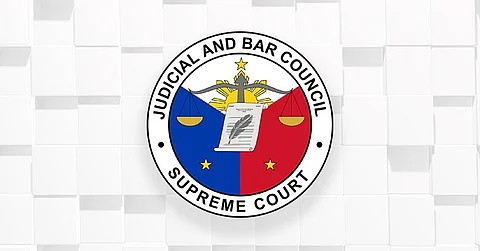
- NEWS
- the EDIT
- COMMENTARY
- BUSINESS
- LIFE
- SHOW
- ACTION
- GLOBAL GOALS
- SNAPS
- DYARYO TIRADA
- MORE

The Judicial and Bar Council (JBC) has tightened its screening process for the country’s next Ombudsman, requiring clearances, complaint checks, and psychological tests as part of the final deliberations.
Supreme Court spokesperson Camille Ting said Tuesday that the rigorous process will determine who makes it to President Ferdinand Marcos Jr.’s desk for appointment. The post has been vacant since 27 July, following the expiration of the Ombudsman’s seven-year, non-renewable term. Under the Constitution, the President has until October 25 to appoint a successor.
“The Ombudsman’s main role is to investigate and prosecute illegal acts or omissions committed by government officials and employees,” Ting explained. “He or she can also determine administrative liability and impose penalties, which may include disqualification from holding public office.” The Ombudsman may only be removed through impeachment.
Applicants must present an Ombudsman clearance certifying they have no pending criminal or administrative cases before the very office they seek to lead. Ting stressed this ensures candidates are of “good moral standing and good moral character.”
Justice Secretary Jesus Crispin Remulla and Judge Felix have yet to submit their clearances, though both were allowed to undergo JBC interviews. Ting clarified that extensions have been allowed in the past, but those who fail to submit by the day of deliberation cannot be considered for the shortlist.
The JBC has also opened an online platform for the public to file complaints or oppositions against applicants. These inputs, along with psychological evaluations, written exam results, and interview performance, will be factored into the deliberations.
“The JBC will collate all results and then, during preliminary deliberations, rank applicants as most preferred, next preferred, or least preferred,” Ting said. The final deliberation will determine the shortlist to be submitted to Malacañang.
Complaints received will not be made public but will still be considered in the overall evaluation.
Once the shortlist is finalized, the President is constitutionally required to select the Ombudsman only from the nominees provided by the JBC. “The President has to, under the Constitution, choose from the shortlist as part of the checks and balances,” Ting emphasized.
The JBC, chaired by Chief Justice Alexander G. Gesmundo, currently has seven members. Since Justice Secretary Remulla is an applicant, he cannot participate in the voting. This leaves six members, with at least four votes needed to include an applicant in the shortlist.
Criteria such as psychological test results, academic records like bar exam performance, and interview scores will all be weighed. Ting noted that negative findings in psychological assessments “will definitely be taken into account.”
With less than two months left before the 25 October deadline, the JBC is expected to finalize its shortlist soon. Ting underscored that the process is designed to be transparent, structured, and mindful of public participation while upholding institutional safeguards.
“The Ombudsman is a key figure in upholding accountability in government,” Ting said. “That’s why the process to select the next one requires the highest standards.”
